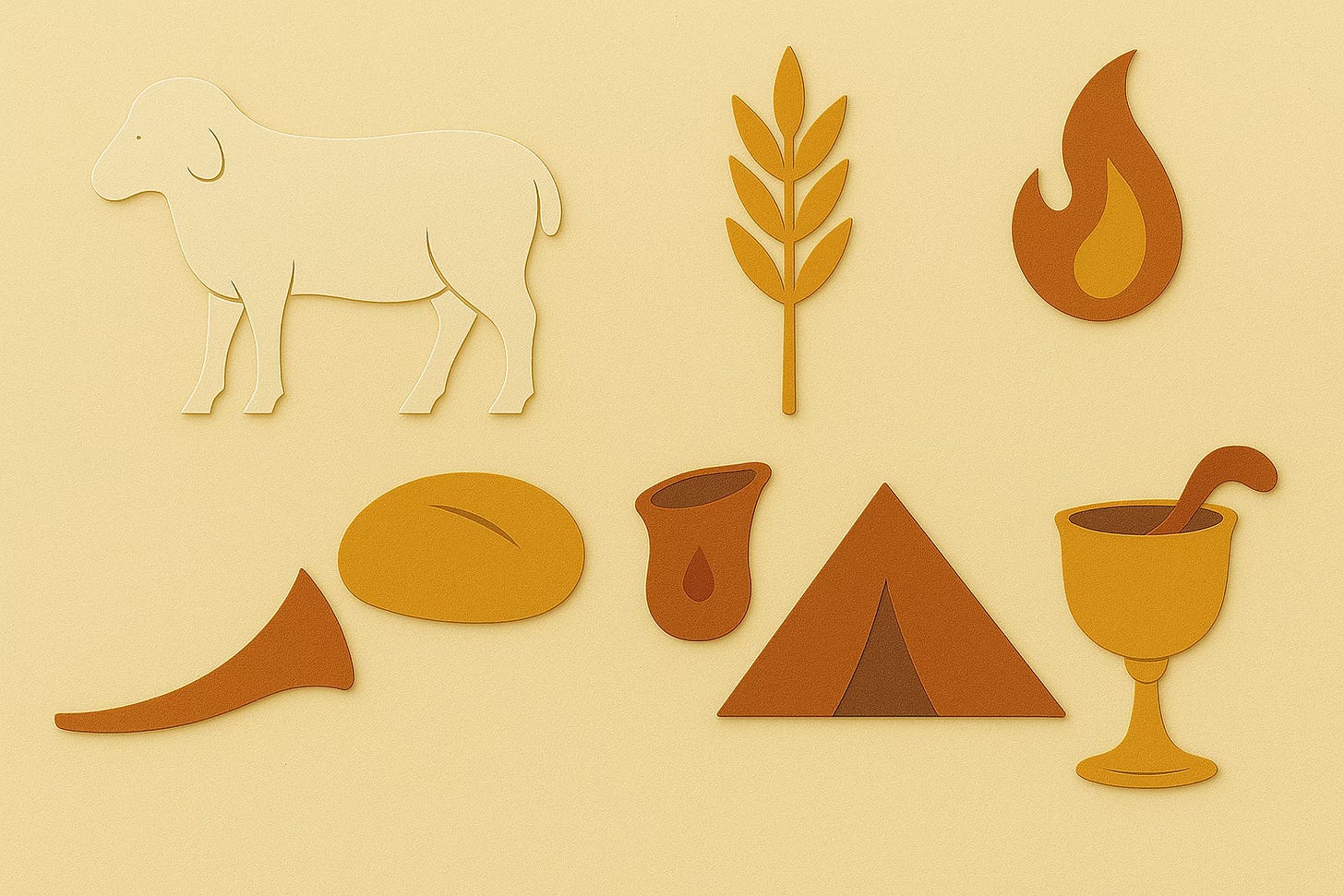Appointed by Yah: Why the Moedim Still Matter
Rediscovering Yahweh’s Sacred Calendar of Redemption, Relationship, and Return
Appointed by Yah: Why the Moedim Still Matter
Subtitle: Rediscovering Yahweh’s Sacred Calendar of Redemption, Relationship, and Return
The Story We Forgot
Imagine receiving a royal invitation to a series of celebrations—same time every year, hand-delivered by the King Himself. These weren't vague or optional. They were appointments—etched into the very fabric of creation.
Now imagine someone else told you they were no longer relevant. Or worse—replaced.
That’s what happened with the moedim—the appointed times of Yahweh.
These are not “Jewish holidays.” They are Yah’s own feasts—His moedim—set apart from the beginning of time, given as signs, rehearsals, and sacred gatherings for His covenant people (Genesis 1:14, Leviticus 23:2).
And yet, most Christians today don’t even know they exist.
What This Series Is Not
This journey through the moedim is not about legalism. It is not about imposing Torah observance or declaring, “You must celebrate these days.”
It’s about something deeper. Something older. Something more personal.
Since the Spring Feasts have already been fulfilled in breathtaking detail through the life, death, resurrection, and outpouring of the Spirit by Messiah Yeshua, we now look to the Fall Feasts with hopeful anticipation — trusting that He will fulfill them just as precisely.
This is about invitation—not obligation.
It’s about understanding the rhythm Yah established so we could walk in step with Him.
It’s about seeing how Yeshua fulfills these appointments—and how they help us align with the full covenant story.
It’s about rediscovering time the way heaven sees it.
What Are the Moedim?
The Hebrew word moed (מוֹעֵד) means:
Appointed time
Sacred meeting
Covenantal rehearsal
“Let there be lights... for signs and for seasons [moedim]...”
— Genesis 1:14
In other words, Yah built the sun, moon, and stars to keep His calendar, not ours.
And in Leviticus 23, He lays out eight annual appointments that tell His redemptive story:
The Eight Appointed Times of Yah (Moedim)
Passover (Pesach) — The Lamb is slain for deliverance
Unleavened Bread — We walk out of bondage in holiness
Firstfruits — The first harvest is offered; Messiah rises from the grave
Shavuot (Pentecost) — The Torah and Spirit are given (Acts 2)
Yom Teruah (Trumpets) — The shofar sounds to awaken and announce the King
Yom Kippur (Day of Atonement) — Intercession, atonement, and mercy through the High Priest (Hebrews 9–10)
Sukkot (Tabernacles) — Dwelling with Yah in joy, just as Messiah tabernacled among us (John 1:14)
Shemini Atzeret (Eighth Day Assembly) — A final, solemn assembly; a prophetic picture of eternity (Numbers 29:35, Revelation 21:3–4)
What Happened to the Calendar?
Over time, as the Gospel spread into Greco-Roman culture, the Church chose to disconnect from its Hebrew roots. It replaced Yah’s calendar with Rome’s:
This wasn’t just cultural. It was theological. And it severed the church from the rhythm of the covenants.
Messiah and the Moedim: He Showed Up On Time
Yeshua didn’t just fulfill prophecy. He fulfilled it on the exact days Yah had appointed.
Died on Passover (Nisan 14)
Buried during Unleavened Bread
Rose on Firstfruits (Nisan 18)
Poured out the Spirit on Shavuot (50 days later, fulfilling Leviticus 23:15–21)
These weren’t symbolic coincidences. They were divine rehearsals—fulfilled to the letter and the hour.
And the Fall Feasts? They remain unfulfilled—pointing to:
His return (Trumpets)
His millennial reign (Tabernacles; Zechariah 14:16–19)
The eternal Kingdom (Shemini Atzeret; Revelation 21)
Because He fulfilled the Spring Feasts with such exactness, we can wait with joyful expectation that the Fall Feasts will be fulfilled just as precisely.
They are not only prophetic symbols — they are our roadmap for hope.
Why the Moedim Still Matter
They are not about earning righteousness.
They are not about returning to legalism.
They are invitations into deeper covenant.
They are:
Covenant markers — Signs that we walk with Yah
Discipleship rhythms — They form us into holy, alert people
Prophetic rehearsals — They keep us anchored in what was, what is, and what is to come
Messiah’s blueprint — Every one of them leads us straight to Yeshua
To ignore them is not to break a law—it’s to miss an opportunity to walk in Yah’s rhythm.
What to Take Away from This
Yah has a calendar, and it's still in effect
Yeshua fulfills it perfectly
We are invited to learn, remember, and return
This series is about discovery, covenant, and alignment — not performance
Want to See It in Action?
Explore the TWOL Holy Week series, which follows the Spring Feasts through Messiah’s last days:
Discussion Questions
What surprised or challenged you the most about the idea that Yahweh has appointed specific days to meet with His people?
How does understanding the biblical calendar as Yah’s rhythm — rather than a “Jewish thing” — reshape how we view time and spiritual seasons?
In what ways have you experienced (or missed) a sense of sacred time in your spiritual life?
The introduction says the moedim are not about legalism but covenant opportunity. What does that distinction mean to you, and why is it important?
How might learning the purpose and fulfillment of the moedim help us understand the full gospel more deeply?


